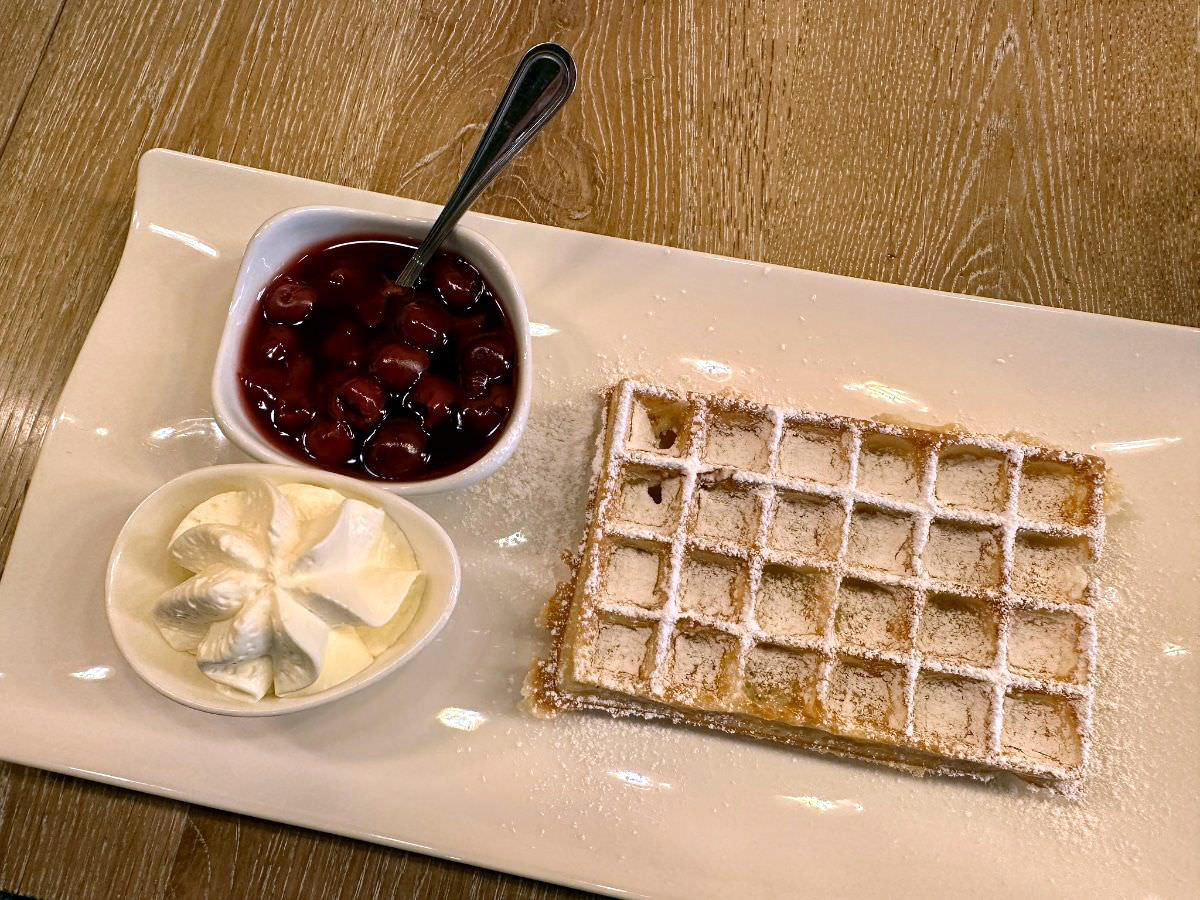Belgian waffles, a cornerstone of European cuisine

Belgian waffles are a cornerstone of European cuisine, rich with history and cultural significance that has spread beyond Belgium’s borders.
1. Historical Significance
- Belgian waffles trace their origins back to the Middle Ages, when early forms were simple batter cakes cooked between iron plates. Over time, they evolved into the well-known Brussels and Liège waffles, each with distinct textures and flavors that reflect regional Belgian culinary traditions.
- Showcased internationally during events like the 1958 Brussels World’s Fair and the 1964 New York World’s Fair, Belgian waffles became cultural ambassadors, capturing the world’s attention and introducing Belgian cuisine to a global audience.
2. Cultural Symbolism
- In Belgium, waffles are an emblem of hospitality, community, and culinary artistry. Often enjoyed as street food, they evoke nostalgia and Belgian pride, embodying the idea of sharing warmth and delight with friends and family.
- The choice of waffles, whether enjoyed plain or adorned with powdered sugar, chocolate, or fresh fruit, allows for customization, reflecting a sense of individuality within a shared cultural experience.
3. Culinary Influence Across Europe
- Belgian waffles have influenced breakfast and dessert menus across Europe, encouraging experimentation with toppings and textures. Their deep pockets are perfect for holding syrups, creams, and other treats, making them a versatile dish.
- Waffle variations have popped up across Europe, from sweet to savory options, showcasing the versatility of the dish and cementing its place in European cafés, markets, and restaurants.
4. Economic Impact and Tourism
- The demand for authentic Belgian waffles contributes significantly to Belgium’s tourism economy, drawing visitors eager to experience the country’s culinary traditions firsthand. Local shops, cafés, and street vendors attract tourists who seek the original taste and ambiance, supporting Belgium’s economy and culinary reputation.
In essence, Belgian waffles are not merely a treat; they are a celebrated part of European culinary heritage, embodying historical roots, cultural pride, and ongoing innovation. Through their universal appeal, Belgian waffles have become a beloved symbol of European cuisine.
Unfortunately, Belgian waffles, including their popular variants like Brussels and Liège waffles, are not protected under the European Union’s geographical indication schemes, such as Protected Designation of Origin (PDO) or Protected Geographical Indication (PGI). These designations are reserved for products that have a specific quality, reputation, or other characteristics attributable to their geographical origin. While Belgium has numerous products with such protections, Belgian waffles do not currently hold this status.
This lack of protection means that the term “Belgian waffle” can be used freely by producers worldwide, regardless of the product’s adherence to traditional Belgian recipes or production methods. Consequently, variations of Belgian waffles are produced and sold globally, often differing significantly from the authentic versions found in Belgium.
For those seeking an authentic Belgian waffle experience, it’s advisable to look for establishments that adhere to traditional Belgian recipes and preparation techniques, ensuring a genuine taste of this beloved culinary treat.
For more information on Belgian cuisine and culinary traditions, visit Visit Belgium.